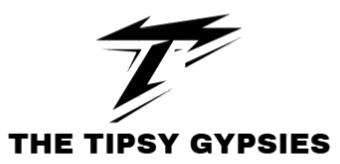The Dymo LabelWriter 550 and 550 Turbo have introduced a major shift in how label rolls are recognized and authenticated. Unlike older models like the LabelWriter 450, the 550 Series uses RFID technology to identify label types and prevent the use of non-authenticated, third-party labels. This change has sparked both interest and concern among users looking to balance quality, cost, and flexibility.
In this article, we’ll take a deep dive into how the 550 Series detects chip-enabled labels, whether non-Dymo labels can still be used, and what your options are if you’re a business relying on Dymo-compatible direct thermal labels.
What Changed in the Dymo 550 Series?
The key shift with the LabelWriter 550 and 550 Turbo is the integration of RFID (Radio Frequency Identification) technology. This system is designed to:
- Automatically detect the size and type of label roll installed
- Display real-time label usage status in Dymo Connect Software
- Prevent the use of non-authentic (unlicensed) label rolls
This marks a move away from purely sensor-based detection (as seen in the 450 Series), toward a chip-dependent system that tightly controls label compatibility.
How the RFID System Works in Dymo 550 Series
Each official Dymo label roll for the 550 Series contains a small embedded RFID tag located in the core of the roll. Here’s how the process works:
- RFID Reader in the Printer: When a roll is inserted, the printer reads the RFID chip.
- Identification: The chip contains pre-programmed data about the label’s size, type, and SKU.
- Verification: If the label is recognized as an official Dymo product, printing is enabled.
- Display: The software shows details like label type, roll quantity, and usage history.
This system is designed to enhance automation and reduce manual setup. However, it also locks out third-party labels that don’t have an RFID chip.
Can You Still Use Non-Official Labels with the 550 Series?
Short Answer: Not directly.
The 550 Series printers will not function with labels that lack a recognized RFID chip. This includes:
- Generic third-party labels
- Remanufactured labels without chips
- DIY/custom rolls without embedded cores
Workarounds and Limitations:
Some users have experimented with workarounds such as:
- Placing an empty official roll core (with RFID chip) under a third-party roll
- Transferring RFID chips to non-genuine rolls
However, these methods are unreliable and may violate warranty terms.
If your workflow depends on using affordable or customized labels, the 550 Series may not be the best fit.
Key Differences Between LabelWriter 450 and 550 Series
Feature LabelWriter 450 LabelWriter 550 Label Detection Gap sensor RFID chip-based Accepts Third-Party Labels Yes No Software Dymo Label Software Dymo Connect Software Label Roll Monitoring Manual Auto with real-time stats Speed (550 Turbo) Faster than 450 Yes (Turbo model)
While the 550 Series offers convenience and improved tracking, it sacrifices label flexibility.
Why Dymo Introduced RFID Restrictions
According to Dymo, the RFID feature provides several benefits:
- Prevents printing errors due to wrong label sizes
- Reduces user errors in label selection
- Offers usage monitoring for inventory planning
- Encourages the use of consistent, high-quality supplies
However, for many users, this also translates to being locked into Dymo’s official (and often more expensive) label ecosystem.
Options for Businesses That Prefer Third-Party Labels
If you’re used to working with reliable, cost-effective third-party labels (like those from Betckey), here are your alternatives:
1. Stick with the LabelWriter 450 or 4XL
These older models still work with a wide range of direct thermal labels and don’t require RFID.
2. Switch to a Different Printer Brand
Other direct thermal printers (such as Zebra, Rollo, etc.) offer full compatibility with third-party labels and high flexibility.
3. Use Pre-Encoded Compatible Labels (If Available)
Some suppliers may offer Dymo-compatible labels with embedded RFID chips. Be cautious of unofficial versions and test thoroughly.taba squishy
Betckey: Your Trusted Partner in High-Quality Label Solutions
Betckey understands that businesses need options. While Dymo 550 series printers limit third-party label use, Betckey continues to offer top-tier direct thermal labels compatible with open-label platforms like the Dymo 450, 4XL, Zebra, and more.
If you’re looking for cost-effective, high-quality alternatives, Betckey ensures your labels perform consistently—without compromise.
FAQs
Q1: Can I trick the Dymo 550 printer into accepting non-Dymo labels?
Some users attempt to reuse RFID cores, but this is not recommended. It’s unreliable and may void your warranty.
Q2: Do all new Dymo printers use RFID chips?
Only the 550 series and 5XL currently enforce RFID label detection. The 450 and 4XL do not.
Q3: Will Betckey labels work with Dymo 550?
Unless explicitly RFID-enabled, Betckey (and other third-party) labels will not work with the 550 series. For full compatibility, use models like the 450 or 4XL.






